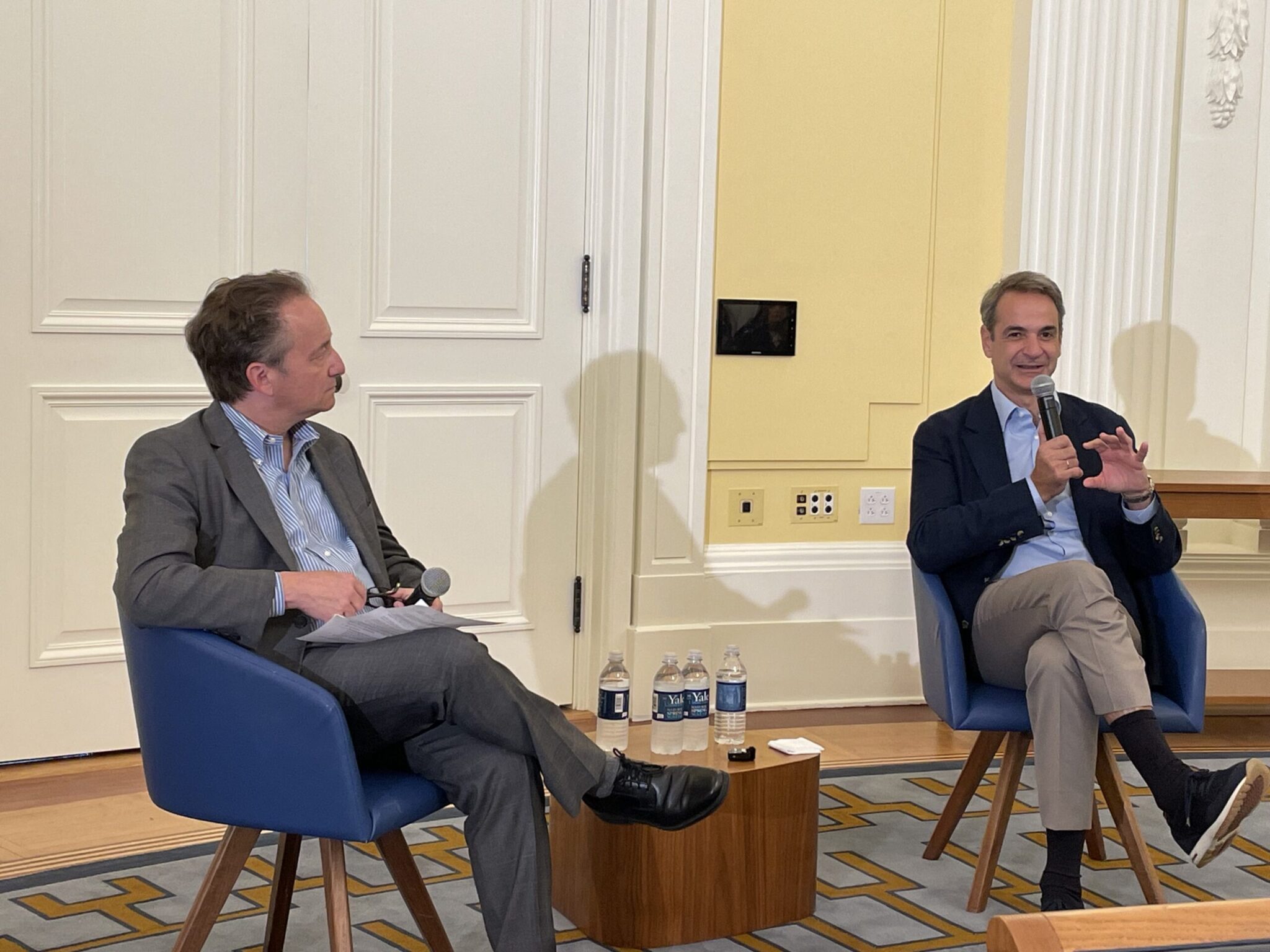
[ad_1]

Ryan Kim, Contributing Photographer
Greece is no longer the “sick man of Europe,” Greek Prime Minister Kyriakos Mitsotakis said.
Mitsotakis visited Yale on Thursday, Sept. 21, for a talk with Yale College Dean Pericles Lewis in the latest installment of the Dean’s Dialogue Series, which “invites esteemed guests to speak with Yale College Dean Pericles Lewis and students about contemporary and sometimes challenging topic,” according to the Schwarzman Center’s website.
One of the goals of the series, per the website, is to “model conversations as a mode of engagement.” Throughout the meeting, Mitsotakis discussed themes ranging from the European Union and the state of democracy in Greece to migration and climate change.
“A lot of global leaders framed a sort of pattern between democracies and autocracies as the defining conflict of our time,” Mitsotakis, who was elected for his second term in June 2023, said. “Greece has been having a vibrant democracy for many decades. But we’re constantly trying to improve the quality of our democratic regime.”
He explained that Greece went through a “profound” economic crisis beginning in 2009, just after the Great Recession, until 2020, when the country’s GDP stopped trending downward. During the crisis, Mitsotakis said, concern spread across the country that economic difficulties might strain democratic institutions.
Mitsotakis argued that while Greece and its democratic institutions weathered the crisis, significant reforms were needed to maintain prosperity in the country.
“In my second term, I really want to make sure that we make significant reforms in our judiciary system because we get lots of complaints that it takes ages for our courts to reach decisions, and we need a well-functioning judiciary system in any mature democracy,” Mitsotakis said.
Next, Mitsotakis and Lewis spoke about foreign policy and Greece’s role in international organizations, like the European Union.
Lewis brought up the recent “Grexit” controversy, in which some Greek citizens argued that Greece should leave the European Union following the United Kingdom’s departure in 2020.
“Greece’s role in the European Union does constrain the Greek government in some ways — what are the benefits that make it worthwhile despite some loss of autonomy?” Lewis asked Mitsotakis.
Mitsotakis explained that Greece’s participation in the European Community — an economic association that is part of the EU — has been “transformational.”
He said that many of Greece’s infrastructure projects have been funded by the EU and that Greece’s membership helps attract foreign investment across many different sectors.
“I think that Brexit was a big mistake,” Mitsotakis said. “And I think that maybe people in the UK realize that the benefits of Brexit actually never materialized.”
The talk, like all Dean’s Dialogues, was open to students and faculty alike and offered community members the opportunity to ask questions of the Prime Minister firsthand.
Attendees expressed excitement at the chance to hear Mitsotakis speak about his career and the country’s history.
“It’s really exciting to get a firsthand view of Greece’s long and important history with the European Union, and also with its allies, including the United States,” Alex Bavalsky ’25, who attended the talk, told the News. Bavalsky is also a co-president of the Yale Daily News Editorial Board, an independent body of undergraduate students separate from the newsroom that pens regular opinion columns.
Angus Yang JGA ’25, who studies public policy at the Jackson School of Global Affairs, highlighted his interest in Mitsotakis’ view on foreign policy and balancing personal and political goals.
Yang also noted that he was surprised by the advice Mitsotakis offered students interested in pursuing public service.
“I think the most interesting part was not about the political situation in the EU but more about his personal view on political life,” Yang told the News. “He said that people interested in politics should have a professional life before having a political career.”
Mitsotakis’ time at Yale was limited due to commitments at the 78th session of the United Nations General Assembly in New York, where he was due to give a speech later that day.
[ad_2]
Source link